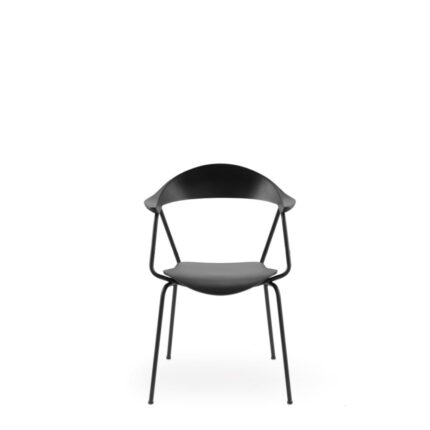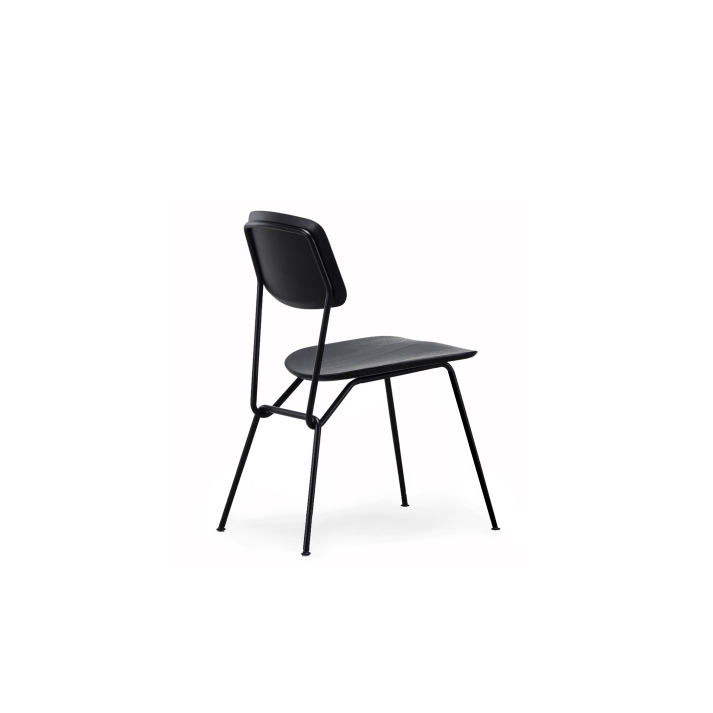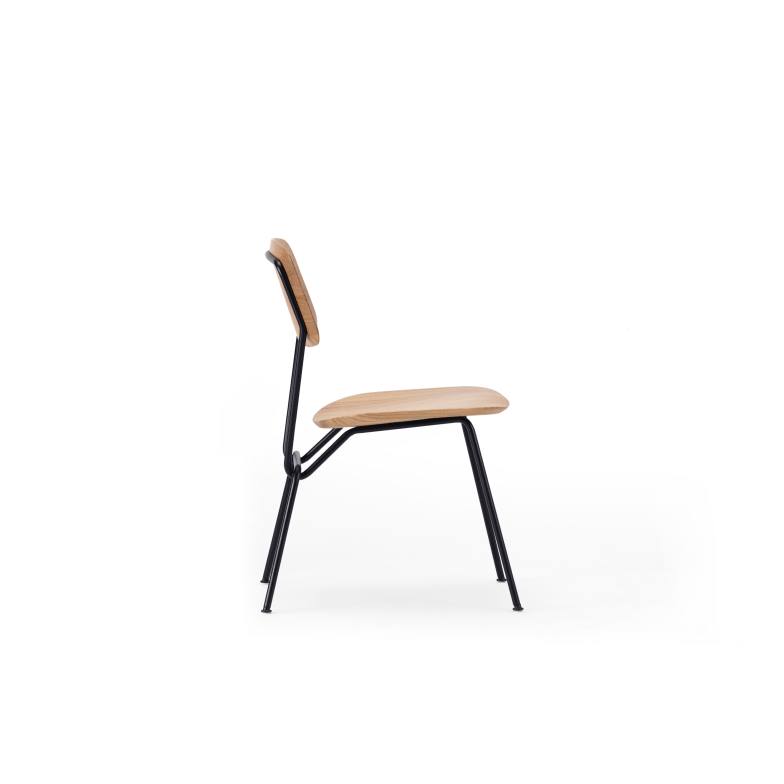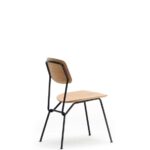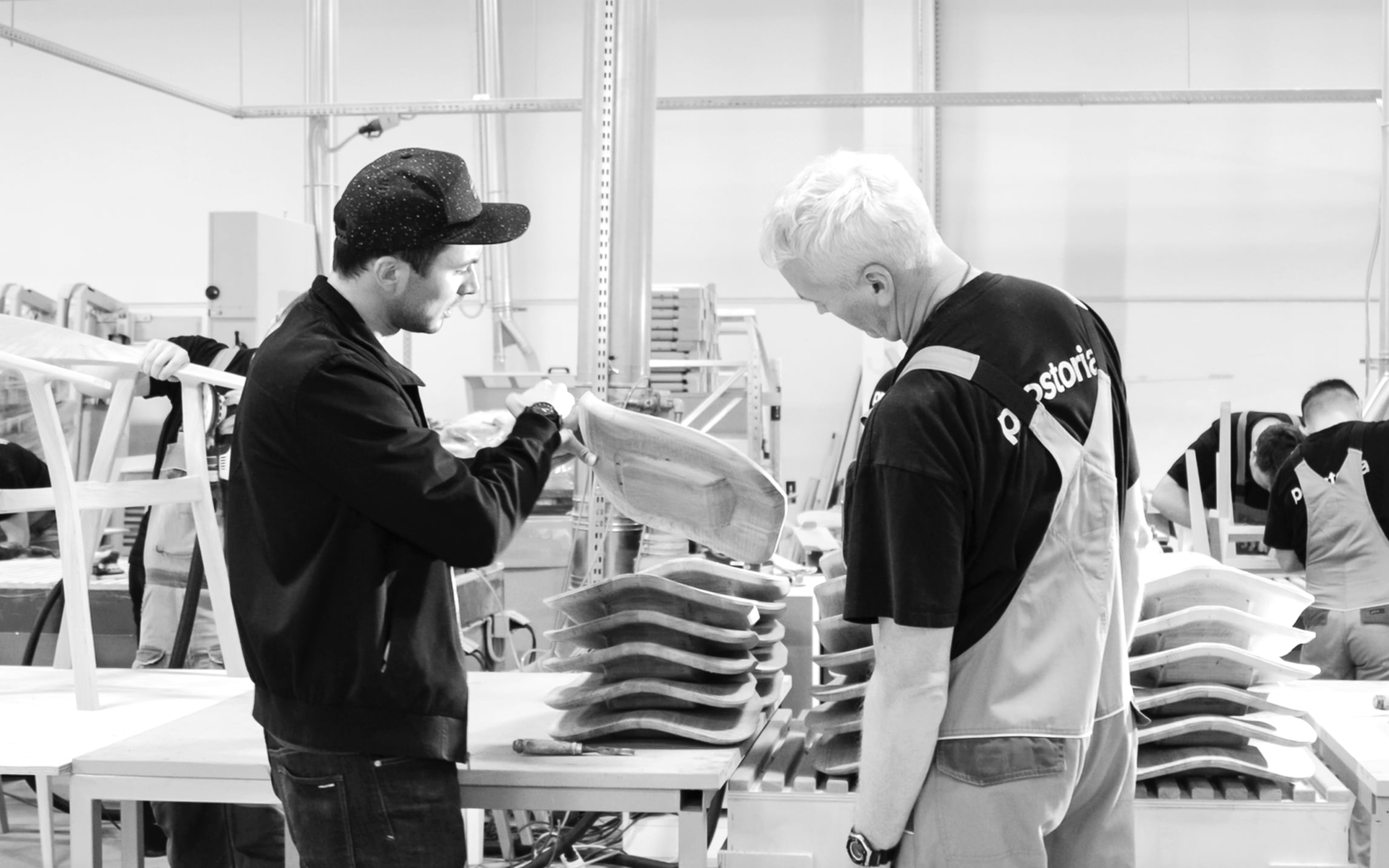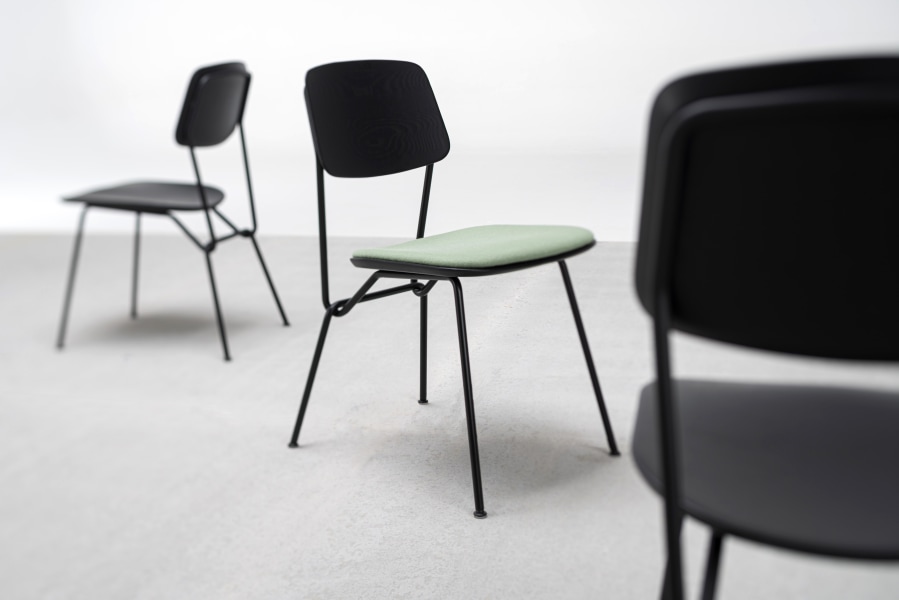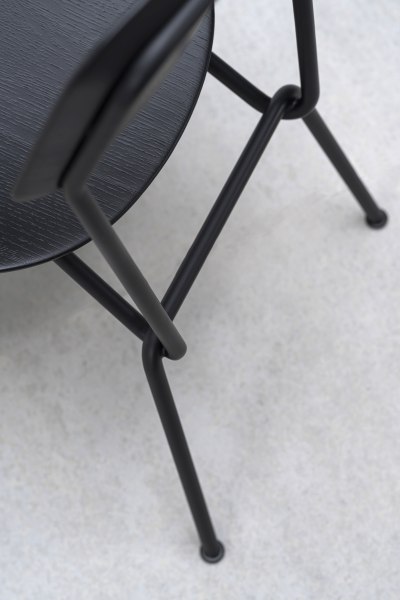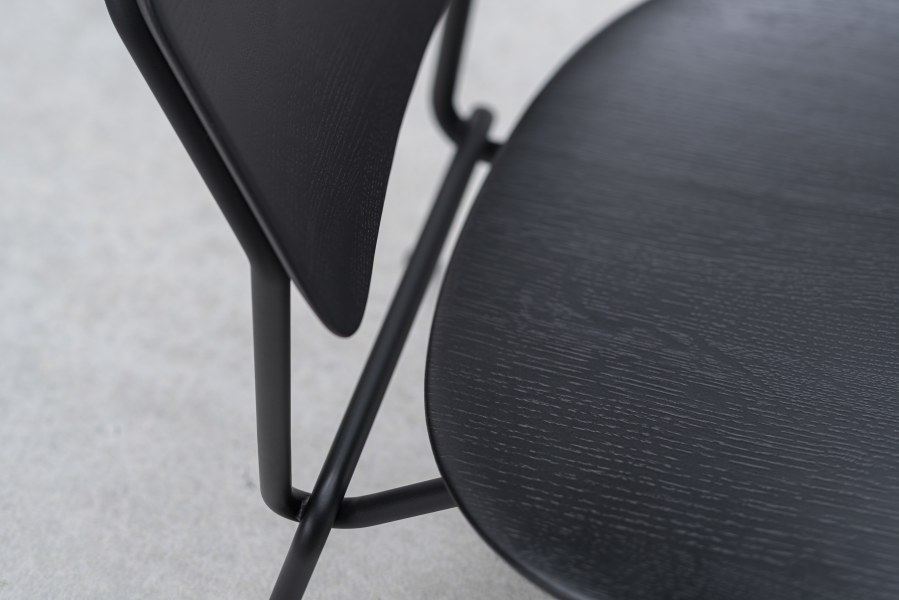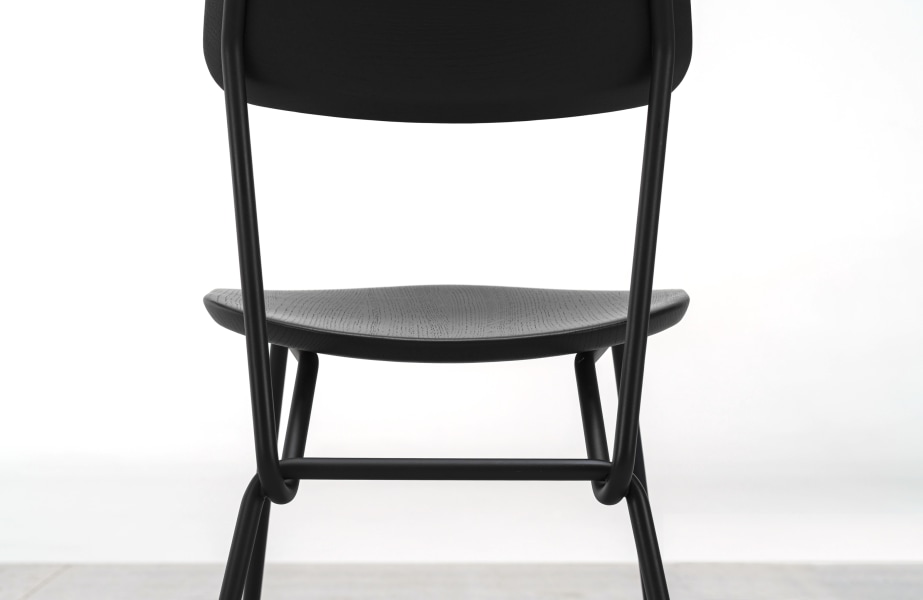Strain Chair | © By Simon Morasi Piperčić
Strain and Unstrain are like twins in the Strain collection but convey their own typology. Both chairs have a universal flair with their ergonomic design of a solid wood seat that can be additionally upholstered with leather or fabrics for superior comfort. They create the perfect solution for interior residential or public spaces.
The ‘strain’ theme continues in the solid wood and ergonomically shaped saddle-like seat of a barstool, thus offering various ways of dynamic seating. Visually light and uncustomarily slender, the collection further consists of tables of various heights and finishes, and two newcomer chairs – Strain and Unstrain. Similar in even more simplified Strain form, their difference lies in the key family feature of intertwisting leg junctions. While Strain retains the twist, which provides the necessary construction stiffness, Unstrain releases it, resulting in the a contemporary interpretation of the 1950s universal chair, which is easily stackable.
The Strain collection’s distinctive character evolves from the highly strained materials. However, the leg junctions are the main signature of its design language, achieved through the intertwined steel tubes which basically harden the whole construction. The easy chair, the collection’s founding product, enhances this concept throughout its form, created by tightly stretched leather over the metal seat shell. Its remarkable comfort is down to the material’s elasticity, which has additional support from the lumbar cushion. The Strain collection’s aesthetic results from the fusion of high-end technology and refined craftsmanship.
Materials:
- Seat solid wood / solid wood + cushion / upholstered seat
- Backrest solid wood + high quality oil / lacquer
- Base metal tube Ø 16 + powder coated matte
Dimensions:
+ Strain Chair
+ Strain Chair with Cushion
+ Strain Chair with Upholstered Seat
Standard Color / Finish Options
+ Strain Chair Wood Options
Lead time for Tinker Chair orders is 5-7 weeks.
Simon Morasi Piperčić
Established in ’13, Simon Morasi Piperčić is a Zagreb-based design office that works on various projects ranging from furniture and spatial design to site-specific installations, art direction, and design consultancy.
The distinctive identity of the studio lies in the intercultural space between elitism and egalitarianism, exclusivity and inclusiveness, avant-garde experiments and highly marketable products, which has helped the team to successfully build a specific position easily recognizable in the global professional context.
The office has been granted with some of the most highly considered awards - German Design Award in 2017, Red Dot in ’13 and ’15 and Interior Innovation award in ’15. In ’14, they were a part of the team that designed Croatian pavilion at the Venice architecture biennale. Their work was published in several renowned magazines (Dezeen, Domus, Frame, Designboom etc.) and exhibited worldwide.
Prostoria
Innovation as Social Responsibility
We tend to perceive furniture as something abstract, created on designers’ desks and then produced, branded and placed on the market by companies with different statuses and reputations. In fact, relations inside the contemporary globalized furniture industry are becoming more and more fragmented with less and less opportunity for complete dedication to synergies and collaborations… Prostoria, as a young company whose catalog already comprises some new icons such as the Polygon armchair and the Revolve transformable sofa, stands as an example of a different and more traditional approach based on the evolution from the local factuality and logical clustering of all actors involved in the production process.
Rapid development of Prostoria, formerly known as Kvadra, a company which has come a long way, from “starting from zero” to positioning itself as the leader and promoter of new ideas in only a few years time, is a story about the reintroduction of continuity both in Croatia and Central Europe, a region with vital but insufficiently recognized design scene and remarkable tradition and knowledge of the furniture industry. Those elements served as latent potentials that provided grounds for a continuation and had to be activated.
Since the beginning, Prostoria has been developing an integrative approach, functioning as a collaboration platform that nourishes and stimulates the continuous exchange of knowledge and experience between all the actors participating in the production of furniture. A dynamic workshop ambiance has been created offering opportunities mainly to young designers to explore their ideas in excellent conditions and bring them to the highest level of design, functionality and technological artisanship. Many products have been developed over long periods of time surpassing a number of iterations until reaching their final form, which would be impossible without adequate support combining the contemporary technology and meticulous craftsmanship and handwork of the highest quality. Predominantly local materials are used, especially solid wood, and most of the production takes place within the company itself or in collaboration with local cooperatives.
While the company’s catalog also offers furniture based on tested models, Prostoria shows strategic and even passionate dedication to research-based design, convinced that authenticity has its place on the market but presents a special challenge in the times when it seems almost impossible to create truly innovative and fresh concepts. For that reason, Prostoria’s social responsibility and specific position have to be observed as a contribution to the evolution of design and readiness to take the risk in order to reach new values for the benefit of users and the culture. Thus, Prostoria stands as a project inside of which designers grow together with the company on the grounds of mutual trust and shared goals.

